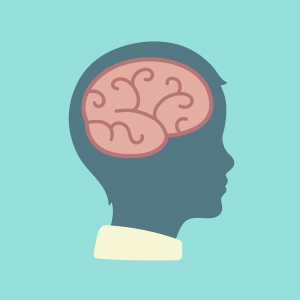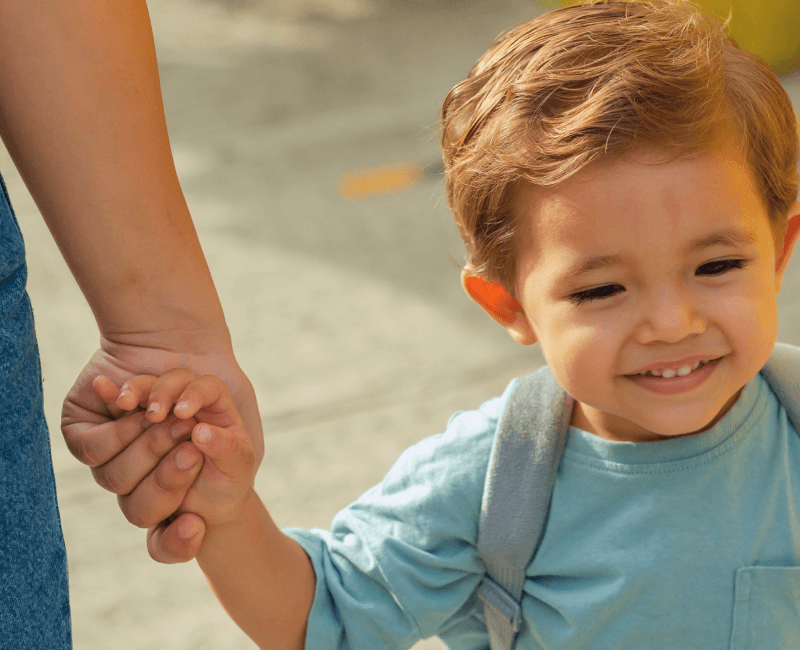How ACEs can affect Language Development
What are Adverse Childhood Experiences?
ACEs are traumatic experiences that occur during childhood that consequently have a large impact on a person’s entire life.
Background
Researchers at Kaiser-Permanente wanted to see if there were any factors that people in their clinics shared. They conducted a survey which asked questions about various aspects of their lives and experiences. From this, they discovered 10 factors that if a person had experienced, there was a higher chance they would have high-risk behaviours. These can include smoking, alcohol and drug abuse and severe obesity. They can even lead to ill-health, such as depression, heart disease, cancer, and even a shortened lifespan.
This was a shocking discovery; no-one had previously linked childhood happenings so conclusively to later life before. Around two-thirds of people experience at least one ACE. 40% of people experience two or more.
The initial 10 ACEs were:
- Physical Abuse
- Emotional Abuse
- Sexual Abuse
- Physical Neglect
- Emotional Neglect
- Domestic Violence
- Household Substance Abuse
- Parent with Mental Illness
- Parental Separation or Divorce
- Incarcerated Family Member

What is the impact?
Further research indicates that:
- there is a 700% increase in alcoholism as a result of having 4 or more ACEs
- an ACE score of four can result in a 200% increase in the risk of a cancer diagnosis
- having four or more ACEs is associated with a 400% increase in emphysema
- an ACE score above six was even associated with a 3000% increase in attempted suicide
What about the impact on language development?
Children aged 3-5 with two or more ACEs are 4 times more likely to have trouble calming themselves down, are easily distracted, and struggle with making and keeping friends. More than three out of four children with ACEs aged 3 to 5 years, have been excluded from nursery.
Young children exposed to five or more significant adverse experiences in the first 3 years of childhood face a 76% likelihood of having one or more delays in their language, emotional, or brain development.

Why do ACEs affect language development?
First of all, we can agree that the 10 factors identified would place significant stress on anyone, in particular children. If a child’s needs aren’t met, every day consequently becomes about survival, and therefore the body goes into a chronic stress response.
When stressed, our body prepares to repel the shock. It does this by producing a number of hormones that dramatically increase productivity, and suppress processes in the body at that moment, for example, appetite. The brain sends signals to the adrenal glands so that they begin to produce adrenaline. It raises blood sugar levels, increases heart rate and raises blood pressure, as well as a lot of other effects.
Cortisol plays an important role in the body’s response to stressful situations. For example, it maintains high levels of glucose and blood pressure so you are ready if you need to take action (fight or flight). Consistent high-stress environments cause more cortisol release and so higher impulsivity. Cortisol acts as a safety valve; it shuts down the prefrontal cortex and then the limbic system.
The prefrontal cortex has 9 key functions which relate to development and communication:
- Empathy
- Insight
- Emotional Flexibility
- Emotional Regulation
- Body Regulation
- Morality
- Intuition
- Attuned Communication
- Fear Modulation

Due to the elevated levels of cortisol, the pre-frontal cortex, which develops these functions is closed down. This results in many children having significant difficulties and delays in these areas.
What is the impact for speech, language and communication?
- Decreased impulse control
- Limited access to words
- Reduced memory capacity
- Difficulties problem solving
- Reduced ability to navigate emotions

Studies have shown that with long-term exposure or too high levels, cortisol has a disastrous effect not only on the human psyche, but also on the structure of the brain. This, therefore, destroys neurons, and prevents the appearance of new ones.
Even once the child is at school, students with at least three ACEs are three times as likely to experience academic failure, six times as likely to have behavioural problems, and five times as likely to have attendance problems. (Study by Area Health Education Center of Washington State University)
What can we do to help?
According to Coster and Cicchetti (1993), children who have experienced ACEs are at risk for a variety of developmental delays and disorders, the most likely and long-lasting being communication. Also, Mothers who experienced a number of ACEs have difficulty in producing coherent narrative reminiscing. This results in long-term difficulties in using language to express feelings, regulate behaviour, and engage in conversational exchanges. There is further information on the link between behaviour and communication in our blog.
The point is, children who have experienced adverse childhood experiences are more likely to require specialist input from a speech and language therapist. Make sure these children are referred to a therapist with further training in social, emotional and mental health. They may also require specialist input from a range of other professionals, including counsellors, CAMHS or drama/play therapy.
What can you do in school to help?
There have been excellent outcomes in America when schools and other public services have used a trauma-informed approach. To do this we need to:
- Realise widespread impact of trauma and understand potential paths for recovery
- Recognise signs and symptoms of trauma in families and staff
- Respond by fully integrating knowledge about trauma into policies, procedures and practice

This simply means that all staff members in a school should understand that a child’s behaviour is a developmental response to past experiences. Instead of labelling the child, we can consider what might have happened to explain their behaviour. Once we understand this, we can address the underlying needs the child has, rather than simply sanctioning their behaviour.
Top tips
Here are some of my top tips to make your school more 'trauma-informed'
- Educate staff in your school about ACES and the lifelong impact of trauma; everyone from administrators to the senior leadership team. Children need to understand their own mental health and strategies they can use to support themselves.
- School might be the only ‘safe place’ the child has. Keep it safe by providing sensory rooms and quiet spaces. School counsellors or pastoral teams mean the child has somewhere to go for support when they need it.
- Remember some children may need support out of school as well as in. Connect them with local charities, youth centres or social care to support them.
- Have boundaries. Often children want to push these to see if you mean what you say. Stay consistent to help them to acknowledge expected behaviours.
- Provide access to mental health services or other interventions. If the waiting list is very long for CAMHS, is there another service you can use in your area?
- Peer to peer support can be a great help. Some schools use ‘befrienders’ or lunchtime clubs to give children the opportunity to make friends and also work on social skills.
- Be predictable. To avoid anxiety, use visual timetables so children can see what is going to happen next and how long they have to do an activity for.
- Try adopting a whole school emotional regulation approach. I particularly like the ‘zones of regulation’ model.
- Mindfulness techniques have shown to be successful when used at the start of class to focus a child’s mind on the activity. They can also be useful for children to use outside of school.
- Never underestimate the power of praise. Many children who have experienced ACEs have low self-esteem, and giving praise can be a huge boost to their confidence, and also helps to build a solid relationship.
- Keep promises. Many children who have experienced ACEs have been let down by adults before. Make sure if you say they can do something then it happens, otherwise they might feel let down all over again.
- General Speech & Language (24)
- Speech and Language Therapy (21)
- Social Communication (11)
- Speech Sounds (7)
- Autism Support (4)
- Language Delay/Disorder (3)
- SEMH (3)
- Safeguarding (3)
- AAC (2)
- Autism (2)
- Relationship Issues (2)
- ADHD Support (1)
- Absenteeism (1)
- Classroom Behaviour (1)
- Cleft Lip/Palate (1)
- Counselling (1)
- Funding (1)
- General mental health (1)
- Generalised anxiety (1)
- MATs (1)
- OCD (1)
- Phobias (1)
- Primary Schools (1)
- SENCOs (1)
- School Issues (1)
- Secondary & Sixth Form Schools (1)
- Stammering (1)
- Trauma (1)
You may also like
These related stories

Getting your child with speech and language needs school ready

Why Waiting Lists for Speech and Language Therapy Services Are Getting Longer - and What You Can Do
